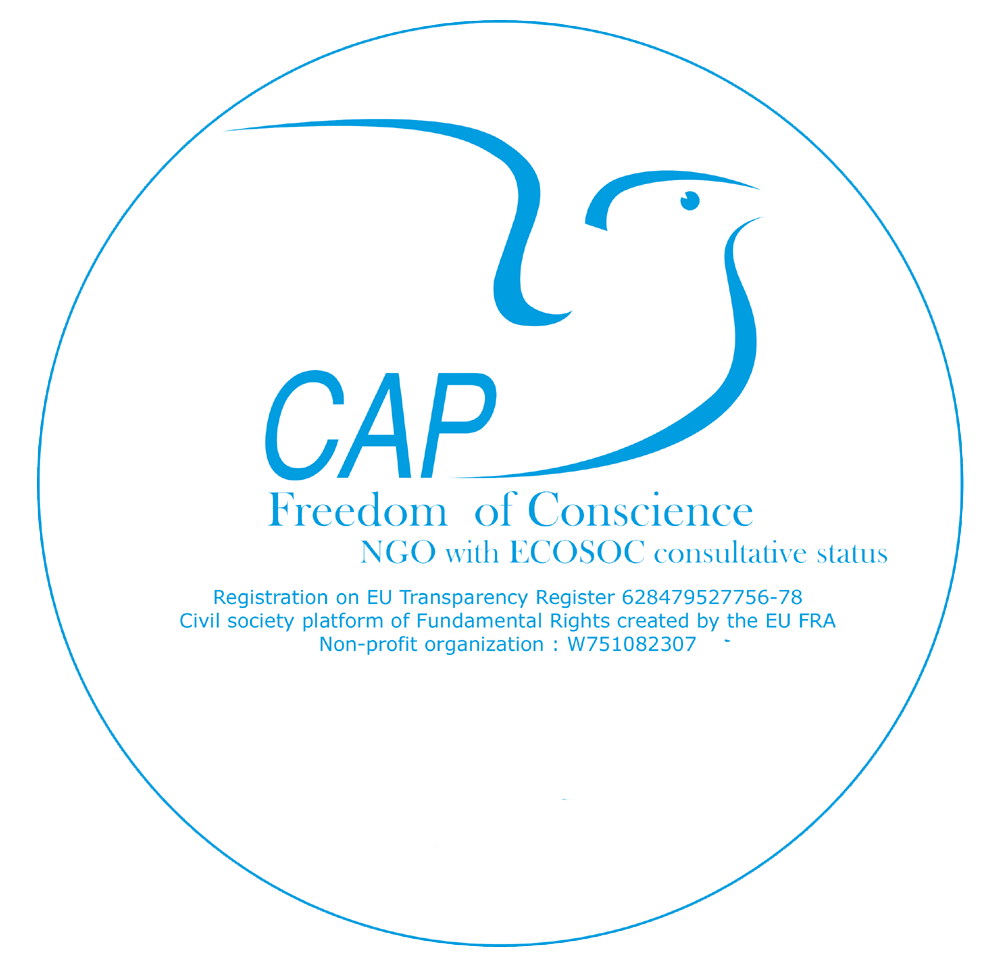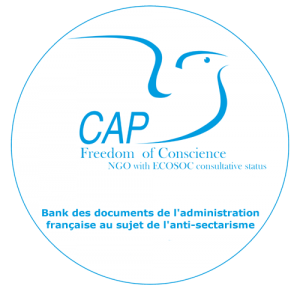At the upcoming 57th session of the UN Human Rights Council, scheduled for September 9 to October 11, 2024, international human rights organizations are set to voice grave concerns over the persecution of members of the Ahmadi Religion of Peace and Light in Jordan. The written statement, that will be submitted by the Coordination des Associations et des Particuliers pour la Liberté de Conscience, a non-governmental organization with special consultative status, highlights a troubling pattern of arrests, detentions, and harassment targeting this religious minority.
The Ahmadi Religion of Peace and Light, a new religious movement founded in 1999 with roots in Twelver Shia Islam, has faced increasing pressure from Jordanian authorities in recent years. The small community, whose beliefs diverge from traditional Muslim views, has been subjected to what appears to be a systematic campaign of intimidation and repression.
The most recent incident, which has prompted this urgent appeal to the Human Rights Council, occurred on July 29, 2024, when six members of the Ahmadi community were arrested while peacefully conducting missionary work in Amman’s Tla Ali district. The detainees, now held in Amman’s Marka prison, are:
- Issa Mahmoud Abd Al-Rahman Abu Shahin
- Fadi Mostafa Mohamad Alyan
- Yahya Hassan Abdullah Jabir
- Omar Mahmoud Abd Al-Rahman Abu Shahin
- Yahia Abedelmajeed Mahmoud Berjawi
- Maryam Jabir Sabir Al-Debaji
These individuals have been charged under Article 150 of the Jordanian Penal Code with “insulting religious feelings of others” and “inciting sectarian strife.” Their arrest and subsequent treatment have raised serious concerns about religious freedom and human rights in Jordan.
According to reports, the detainees were subjected to intense interrogation by both the prosecutor and national intelligence officers. They were questioned about their beliefs and accused of sectarianism and insulting Islam. One particularly contentious point was the Ahmadi belief that the true location of the Kaaba is in Petra, Jordan, rather than in Saudi Arabia.
The interrogators reportedly mocked their beliefs and even accused them of being Iranian agents intent on sowing discord in the country. Intelligence officers allegedly threatened the detainees with job loss if they persisted in their faith.
Perhaps most troubling is the case of Maryam Jabir Sabir Al-Debaji, who was initially slated for release. However, after affirming her faith, her release was postponed and later denied by the governor of Amman. She was subsequently charged along with the others.
The Ahmadi Religion of Peace and Light has condemned these actions as a blatant attack on religious freedom. They are demanding an immediate halt to all persecution, intimidation, and police harassment against its members, as well as the dropping of all charges.
This recent incident is not isolated but part of a broader pattern of repression against the Ahmadi community in Jordan. Since 2016, members have reportedly been subjected to repeated arrests, interrogations, and even physical abuse and torture.
One Ahmadi believer, who spoke on condition of anonymity due to fear of reprisal, shared his experience: “We are constantly living in fear. Our homes have been attacked, our families ostracized. We’ve been called ‘impure apostates’ and some of us have even been forced to resign from our jobs. Is this the price we must pay for our beliefs?”
Another member of the community, a former military officer, recounted his ordeal: “After 18 years of service in the Jordanian army, I was forced to resign from my position as a major. My crime? My faith. How can a country that claims to protect religious freedom treat its citizens this way?”
The persecution extends beyond individual harassment. In 2020, Jordanian authorities shut down the satellite channel of the Ahmadi Religion of Peace and Light, which had been broadcasting to hundreds of thousands of homes in the Middle East and North Africa region.
These actions stand in stark contrast to Jordan’s constitutional guarantees and international commitments. The Jordanian constitution ostensibly protects “the free exercise of all forms of worship and religious rites” and prohibits discrimination based on religion. Moreover, Jordan is a party to the UN International Covenant on Civil and Political Rights (ICCPR), which protects freedom of religion or belief.
The Ahmadi Religion of Peace and Light, while rooted in Islamic tradition, holds several beliefs that diverge from mainstream Islam. These include:
- The belief that the real Kaaba is located in Petra, Jordan, not in Mecca
- The view that all prophets throughout Islamic history made mistakes
- The rejection of fixed times for prayers
- The belief that Ramadan should be observed in December
- Opposition to mandatory headscarves for women
- Acceptance of moderate alcohol consumption
- Inclusion and acceptance of LGBTQ individuals in their community
These beliefs have put them at odds with more conservative elements in Jordanian society and, apparently, with the authorities themselves.
Human rights organizations are particularly concerned about the use of Article 150 of the Jordanian Penal Code to suppress religious freedom and limit freedom of expression. This article has been criticized as overly broad and open to abuse.
As the 57th session of the Human Rights Council approaches, international NGOs are preparing to take further action to denounce the situation in Jordan. They plan to call on the Council to urge Jordan to uphold its obligations under international human rights law and to guarantee freedom of expression and belief to all its citizens without discrimination.
The written statement to be presented at the Council session concludes with several key recommendations for the Jordanian authorities:
- Immediately release the members of the Ahmadi Religion of Peace and Light arrested on July 29, 2024, and end their prosecution.
- Safeguard the free exercise of religion for the Ahmadi community, as protected by Articles 6 and 14 of the Jordanian Constitution.
- Abide by commitments to international law, particularly Article 18 of the International Covenant on Civil and Political Rights.
As the international community turns its attention to this issue, the fate of the six detained Ahmadi members hangs in the balance. Their case has become a litmus test for religious freedom and human rights in Jordan, a country often viewed as a relative bastion of stability and moderation in the Middle East.
The upcoming Human Rights Council session provides a crucial opportunity to shine a spotlight on these violations and to call for concrete action to protect the rights of religious minorities in Jordan. As one Ahmadi member put it, “We’re not asking for special treatment. We’re simply asking for the right to practice our faith in peace, without fear of persecution or imprisonment. Is that too much to ask in the 21st century?”
The world will be watching as this case unfolds, hoping that Jordan will choose to uphold its commitments to religious freedom and human rights, and set a positive example for the region and the world.






